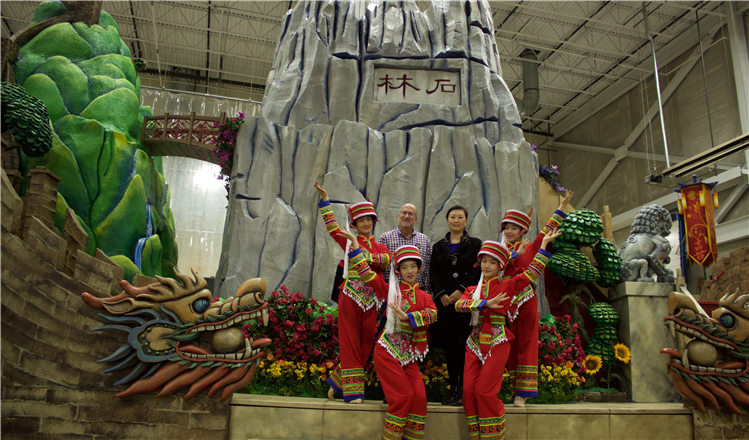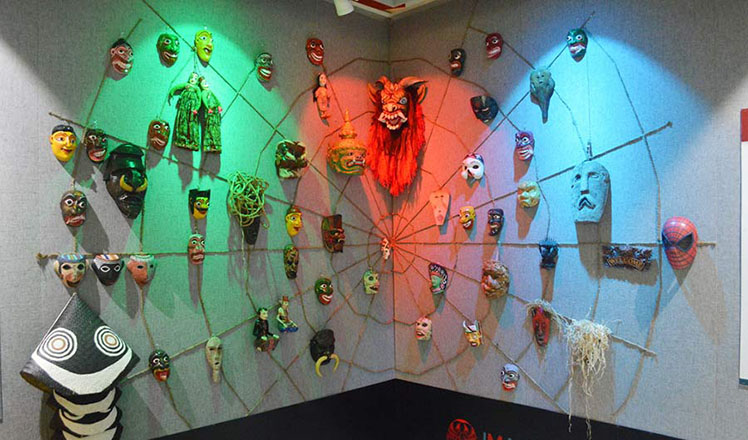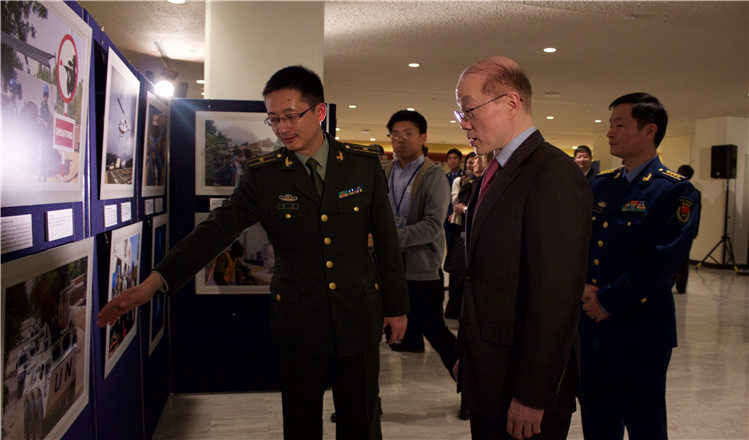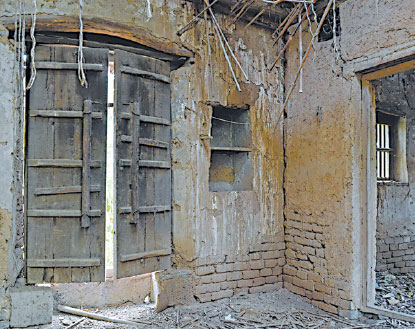Home's crumbling bricks and dust should raise an alarm
Updated: 2015-11-12 07:49
By James Healy(China Daily)
|
||||||||
My fourth visit in six years to Chenjiagou included a very special moment.
As my friend Lu Dongdong, a doctor of law and grandson of the famous tai chi Grandmaster Chen Zhenglei, led me along a weed-choked path toward a wooded area in a less-traveled part of the ancient village, he stopped abruptly.
"There it is," he said, pointing past a natural arbor that surrounded a humble, crumbling brick building in the distance. "That is where my grandfather grew up. But we can't go any farther."
The trail had disappeared beneath our feet, giving way to thick undergrowth and a tangle of tree branches. Forward progress seemed impossible. But I was determined to see the home where my tai chi master spent his childhood.
In 2011, shortly before becoming a disciple of Master Chen's, I read an English-language translation of his autobiography. In it, he tells of childhood heartbreak and struggles, of standing over the fire in the kitchen of his home during terribly cold winter days, though having little to cook or to eat, and, at the age of 10, preparing meals for his ill mother.
So we pushed onward through the thicket, impervious to the brambles and mosquitoes, and soon came upon the house. Its back wall was gone and the roof was in disrepair, the bamboo hanging wearily with age.
As Lu, fellow China Daily reporter Qi Xin and I stepped into a clutter of broken tiles, bricks and dust, what we first noticed, still standing solid, was the long-abandoned brick stove.

I stood in the very place where my master, as an infant, had stopped breathing after an illness, a doctor pronouncing him dead, his grief-stricken mother shrieking. This was the house from which he was taken, wrapped in a blanket, and left by his inconsolable mother at a hillside graveyard for infants, where he would soon be revived by a sudden loud thunderclap (hence Lei, or "Thunder", the name given to him by his father). I wondered why this important part of recent tai chi history had been allowed to crumble with age. Lu told me his grandfather owns the home, but the government holds the title to the land beneath it and has plans for the surrounding area, so its future lies in the balance.
Nearby, overgrown with leaves, was the brick wall of a courtyard where the childhood home of grandmasters Chen Xiaowang and Chen Xiaoxing, cousins of Chen Zhenglei, once stood. Nothing remained of their house, which Chen Xiaowang told me was the place in the village he missed the most.
Amid the feverish pace of building Chenjiagou into a destination for foreign and domestic travelers, let's hope that those involved in planning the village's future will have the wisdom to save what is left of Chen Zhenglei's childhood home and other remaining houses of famous masters.
Likewise, I pray they will preserve the other treasures of the village's recent and distant past, so that visitors in the decades to come can stand and marvel at a real piece of history, and not just empty ground.
|
Tai chi Grandmaster Chen Zhenglei's childhood home has long been neglected and is in a state of disrepair. James Healy / China Daily |
(China Daily 11/12/2015 page6)

 Xi-Ma meeting lauded in US
Xi-Ma meeting lauded in US
 Kunming's parade float: set in stone
Kunming's parade float: set in stone
 All-nighters pulled for Single's Day shopping festival
All-nighters pulled for Single's Day shopping festival
 Victoria's Secret Fashion Show
Victoria's Secret Fashion Show
 1000 masks from around the world gather in Shanghai
1000 masks from around the world gather in Shanghai
 Surprising deliveries to look forward to after Singles' Day
Surprising deliveries to look forward to after Singles' Day
 Photo exhibit hails Chinese peacekeepers
Photo exhibit hails Chinese peacekeepers
 Washington 'showing anxiety in stance adopted toward Beijing'
Washington 'showing anxiety in stance adopted toward Beijing'
Most Viewed
Editor's Picks

|

|

|

|

|

|
Today's Top News
Obama, Netanyahu at White House seek to mend US-Israel ties
China, not Canada, is top US trade partner
Tu first Chinese to win Nobel Prize in Medicine
Huntsman says Sino-US relationship needs common goals
Xi pledges $2 billion to help developing countries
Young people from US look forward to Xi's state visit: Survey
US to accept more refugees than planned
Li calls on State-owned firms to tap more global markets
US Weekly

|

|







